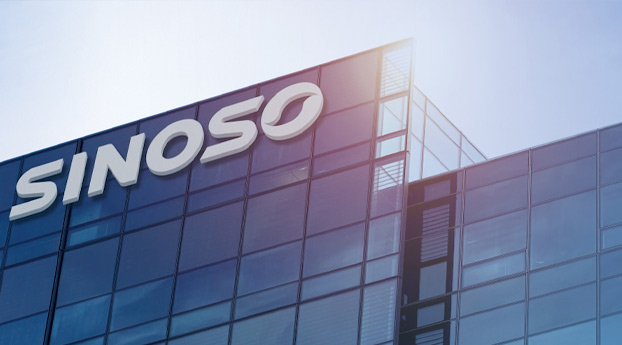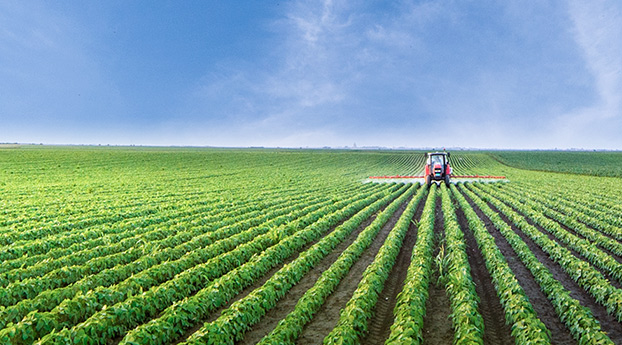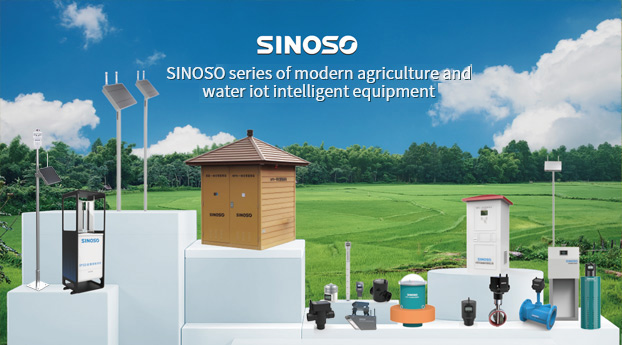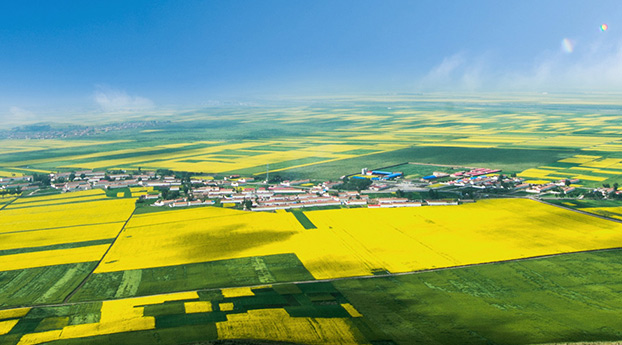SINOSO | The school-Enterprise Cooperation and exchange Symposium between SINOSO and College of Science, China Agricultural University was successfully held
Release time:2024-07-16 Views:235
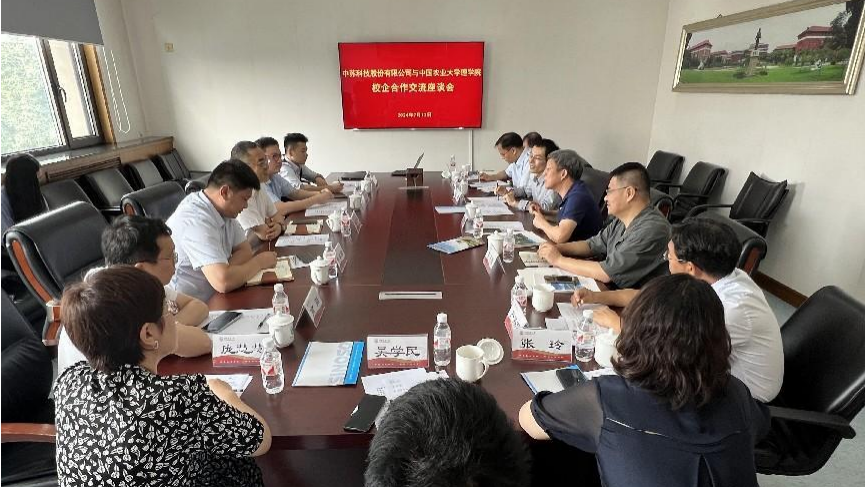
On July 12, SINOSO (stock code: 872102) and College of Science, China Agricultural University jointly held a unique school-enterprise cooperation and exchange symposium. Senior leaders, experts and scholars from both sides gathered together to seek a new chapter in the integration of scientific and technological innovation and production, education and research, and contribute to the process of promoting agricultural modernization in our country.
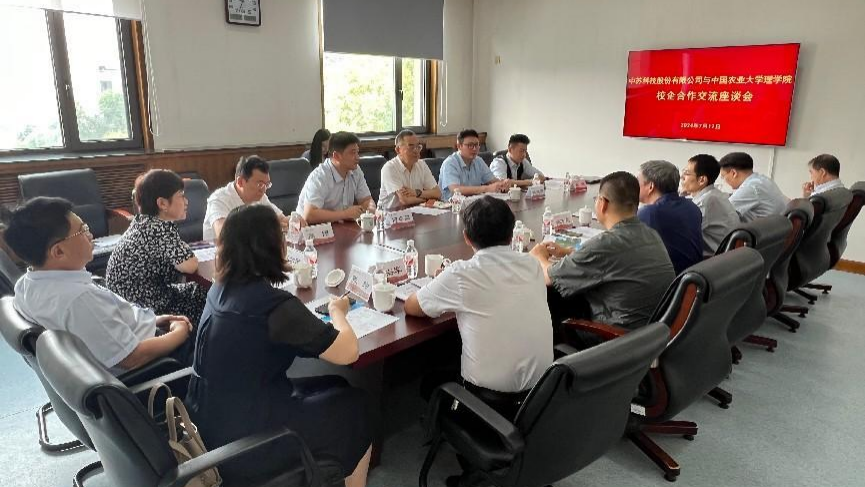
China Agricultural University Vice President Lin Wanlong, College of Science Party Secretary Li Hongdong, College of Science Dean Wang Peng, College of Science Vice President Hou Songbo, College of Science Deputy Party Secretary and Vice President Zhang Ling, College of Water Conservancy and Civil Engineering Professor Yan Haijun, College of Science Applied Chemistry Dean Liu Shangzhong, College of Science Applied Mathematics Dean Pang Huihui, College of Science Applied Mechanics Dean Gao Yang, College of Science Applied Mechanics Dean Department professor Wu Xuemin, Zhongsu Technology Co., LTD. Chairman Song Chengfa, Market and Investment development Center market development director Zhu Bin, brand Department Minister Sun Siyang, water resources and hydropower Division marketing director He Zhuoyang and other leaders and experts and scholars participated in the forum.
The meeting, presided over by Wang Peng, dean of the College of Science, introduced in detail the history, scientific research achievements and future development direction of China Agricultural University, and advocated that the two sides explore more diversified forms of cooperation.
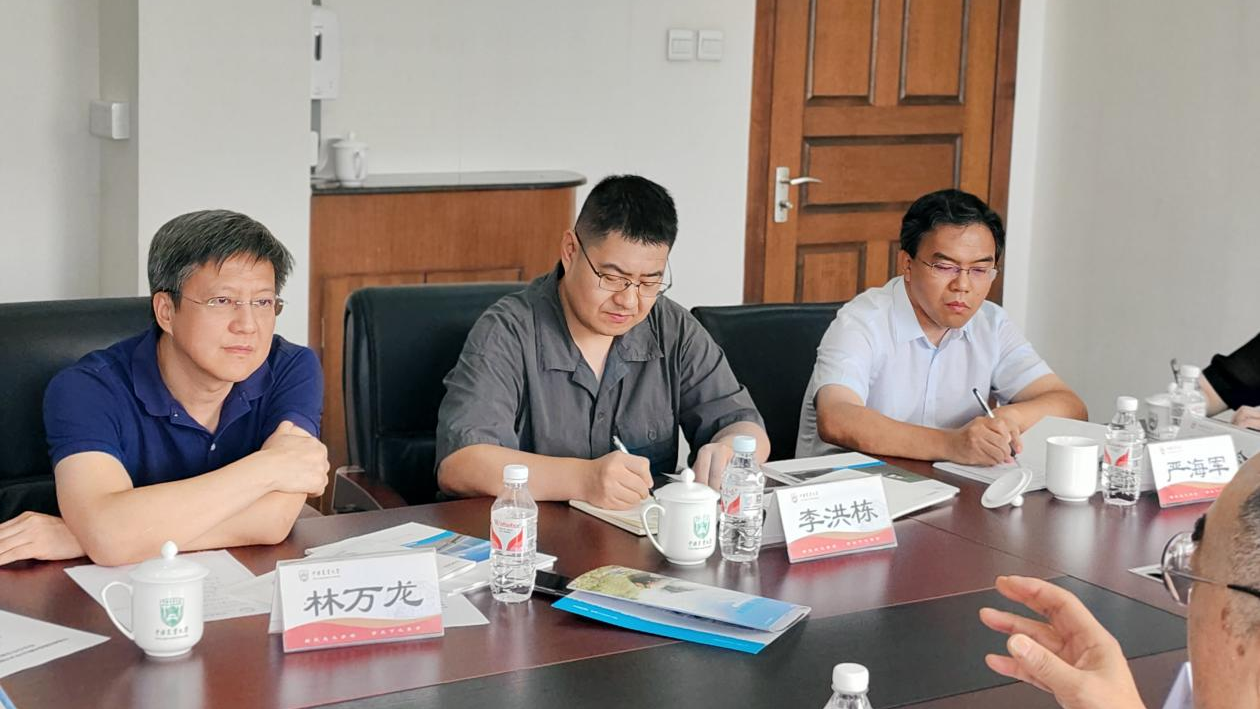
Lin Wanlong, Vice president of China Agricultural University, delivered a speech on behalf of the university. He highly appreciated the intensive work of Sino-Soviet science and technology in the agricultural field and placed high hopes on the cooperation between the two sides. He pointed out that the cooperation model of "Sino-Soviet science and technology, and China Agricultural University" can not only promote the rapid transformation of scientific research results, but also inject new vitality and momentum into the agricultural industry. He further expressed his expectations for the cooperation, hoping that the two sides can achieve deep integration in personnel training, scientific research projects, platform construction and other aspects to jointly promote the process of agricultural modernization. Li Hongdong, secretary of the Party Committee of the College of Science, proposed the idea of establishing a cooperative research and development center, aiming to provide more efficient and professional services and support for the industry through the integration of resources and complementary advantages.
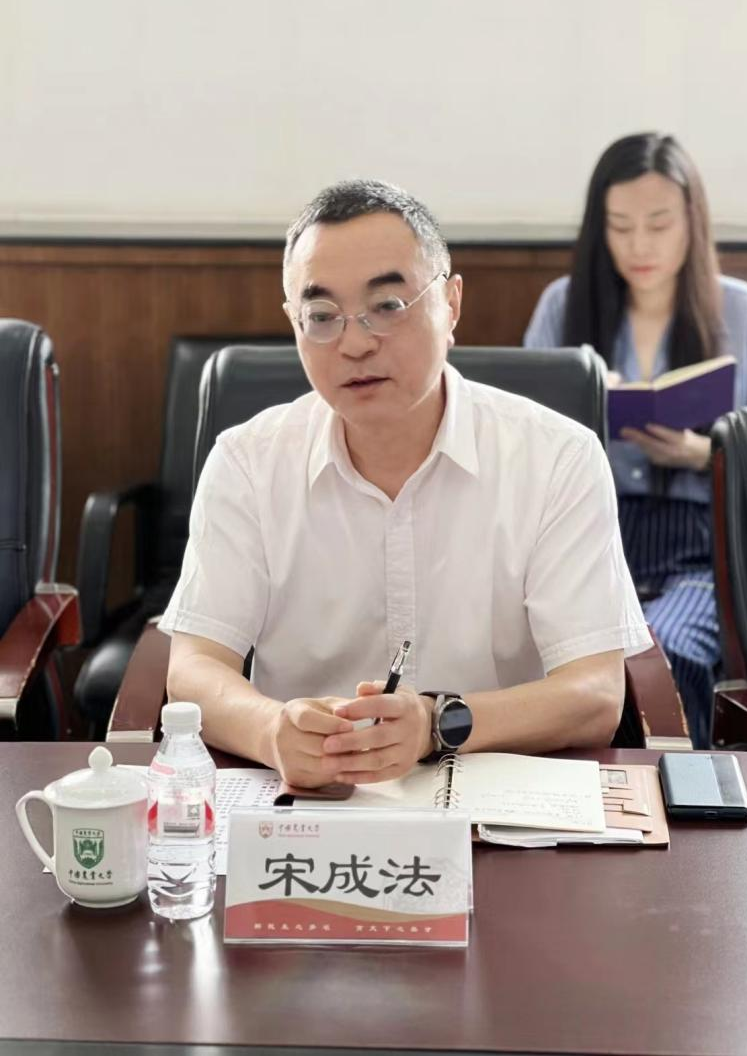
Song Chengfa, chairman of Zhongsu Science and Technology Co., LTD., said that ZhongSU Science and Technology has its own research and development team, hoping to join forces with China Agricultural University and complement each other's advantages to further improve the innovative research and development capability of ZhongSU Science and Technology. It also looked forward to the future cooperation prospects, stressing that Sino-Soviet Science and Technology will uphold an open and cooperative attitude, and carry out more in-depth and extensive cooperation with Agricultural University in scientific research and innovation, personnel training, market expansion and other aspects, so as to jointly promote the progress and development of agricultural science and technology.
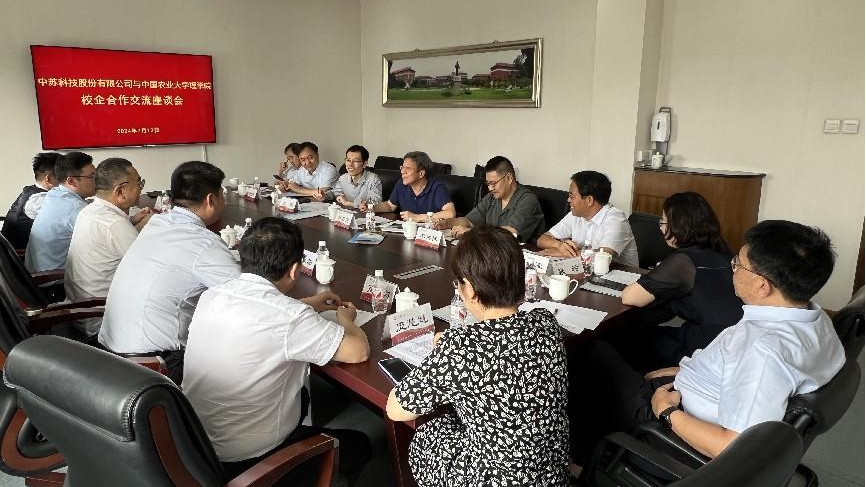
At the symposium, experts and scholars from the College of Science of China Agricultural University made speeches and shared the latest research results and insights in their respective fields. Liu Shangzhong, director of the Department of Applied Chemistry, focused on pesticide and product plant protection, and combined with the practical application of Sino-Soviet Science and technology orchard robot in the future, expounded the broad prospect of new pesticide research and development. Wu Xuemin, professor of the Department of Applied Chemistry, put forward the concept of smart orchard product application, facility agriculture application and agricultural machinery, agricultural equipment and agronomy "three integration". Pang Huihui, head of the Department of Applied Mathematics, deeply discussed the application of agricultural big data and AI algorithms in precision agriculture, showing the infinite possibilities of science and technology enabling agriculture. Gao Yang, deputy director of the Department of Applied Mechanics, shared the practical application cases of technological innovation in agricultural production from the perspective of monitoring plant growth and plant protection by iot sensors.
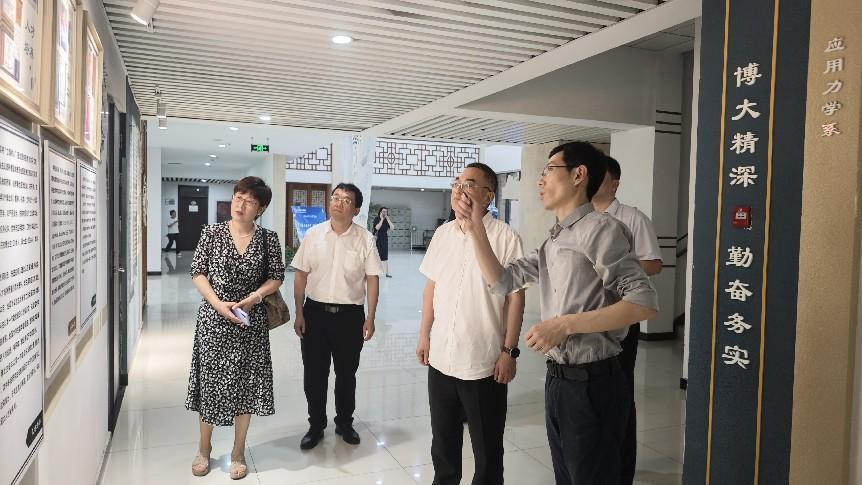
Right first Li College president Wang Peng
After the symposium, the two sides also paid a field visit to the College of Science of China Agricultural University to gain an in-depth understanding of the school's latest progress in agricultural science research. The College of Science of China Agricultural University was formed by the merger of the former College of Applied Chemistry, the Department of Basic Engineering Science and the College of Information Science. It consists of four departments: Applied Science, Applied Mathematics, applied Physics and applied Mechanics. The college has the State Key discipline of pesticide science, the National Science Basic Science Research and teaching talent training Base of chemistry (National Chemical Science Base), the Ministry of Agriculture Pesticide Chemistry and Application Technology Key open Laboratory, Beijing Experimental Teaching Demonstration Center (Chemistry), the Ministry of Agriculture Agricultural Product Quality Inspection and Testing Center (Beijing). Among them, the Department of Chemistry and the chemistry major of Peking University are the national chemical science bases, with the key laboratory of the Ministry of Agriculture, and pesticide science has created the first pesticide science in China, and pesticide science is a national key discipline.
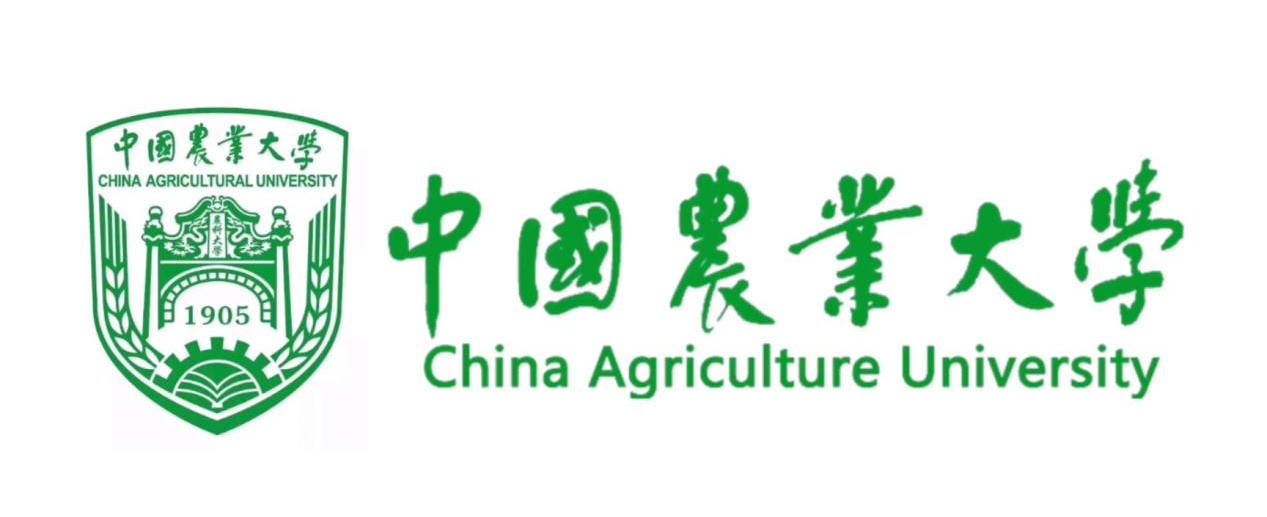

The school-enterprise cooperation and exchange symposium between Sino-Soviet Science and Technology Co., Ltd. and the College of Science of China Agricultural University not only deepened the understanding and trust between the two sides, but also laid a solid foundation for future cooperation. It is believed that with the joint efforts of both sides, a new chapter of agricultural science and technology cooperation will be opened and more wisdom and strength will be contributed to China's agricultural modernization.

